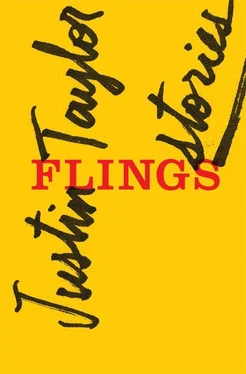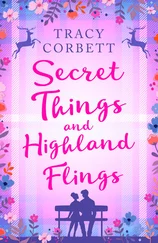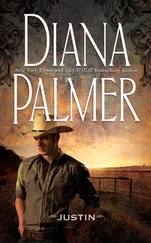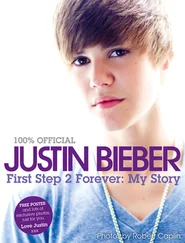Isaac had a new suit, a blue one that fit him, for our sixth grade graduation, which was held in the library, a spacious open-plan building with a tall peaked roof. They pushed all the rolling shelves against the walls and brought a makeshift stage in and folding chairs for the parents. Our principal gave a speech, and so did Dr. Joshua Mizzum, a local orthodontist who was running for school board. After that the chorus sang “Don’t Stop Thinking About Tomorrow” and then the principal came back up to read all of our names. They included Jake’s with the rest of the class, and he got a standing ovation. Boys in pulled-loose ties clapped and cheered while girls who had never spoken a word to either twin dabbed away fat jewel-like tears.
The Adelmans went away that summer, and the next year Isaac’s parents enrolled him in a private school. He took a bus and wore a uniform and had all new friends. My mother never pressed me about it. I think that as far as she was concerned I had done my job.
This was a lonely time for me. Our house was on a lake and there was this one part, down our block a ways, where the road went over a canal. I liked to spend time there. I’d hop a low fence, scuttle down eight or maybe ten feet of embankment, not too steep. A skinny oak stood at the shoreline, leaning out over the smooth, still water so a mirror tree hung in the lake, its limbs like arms reaching down into a dull sky at the bottom of the world. Instead of going to the tree, you turned around and then could duck into the culvert. It had a concrete ledge big enough to sit comfortably on. The cars going by on the road above made a low pervasive thrum, and if you raised your voice you got killer echo. As near as I could tell nobody else knew about it. I’d go down there with comic books, or a box of matches and a few of my old G.I. Joes, even my homework if I was bored enough.
Sometimes I would sing down there, songs by bands I liked or older stuff off records my mom played or even songs they’d made us learn in Hebrew school — anything I knew by heart. I sang “Adon Olam,” which was my favorite Jewish song, mostly because of its melody, which was like, I don’t know, swaying or something, but also it had these, like, zigzags in it. I mean it felt powerful somehow, significant, almost haunted — if you can be haunted in a good way. I liked to sing as loudly as I could and go slow, stretch each line out so the echoes piled up on each other and I would keep my eyes shut tight and feel like I was disappearing into the noise, or else becoming it. Vortex, I thought. Wormhole. Black hole. Vacuum. B’terem kol. In English this meant “before the creation,” or “before form.” What the song was saying was that God is God of everything even when there’s nothing to be God of. Which was exactly how I felt when I was down there: a God of nothing.
For my sixteenth birthday my mom gave me her ’91 Buick Skylark, free and clear, having leased herself a certified preowned Volvo. But she warned me that she was only paying for gas until the end of the school year, which meant I was going to need a summer job. Which is how Isaac Adelman came back into my life again, in the summer of 1998, at a day camp run out of the local JCC, where we’d both applied to be junior counselors and had been assigned to work together.
Our senior counselor was three years older, a college girl home for the summer. Alana Shekhin had gone to my high school but had been a senior when I was a freshman. I knew she’d been in Honor Society and run with the J.A.P. crowd, into which she’d blended well enough to have never figured in any but my most depraved locker room fantasies. But the year away had been good to her. She’d let her hair grow past her shoulders and had a silver nose stud that the camp wouldn’t let her wear while she was on duty. I would see her at the end of the day, sitting in her car, putting it back in before she turned the ignition. She had a flat stomach but a thick waist, strong legs topped by a world-class fat Jewish ass crammed into a small pair of khaki shorts. She wore a gold chai charm on a thin gold chain.
Isaac wore a gold chain, too, but a thicker one, with no charm. He had a fade in his hair, baggy basketball shorts low on his hips, and spotless white Nike Airs. I wore whatever. Brown or beige cargoes, a pair of scuffed Vans or my old black Airwalks with the little carrot insignia stitched on the tongue. I’d had them since eighth grade and considered them my lucky sneakers, despite being vaguely ashamed that they still fit, though I told myself they would have been unbearably tight if they hadn’t been so worn in.
And all of us in our requisite camp T-shirts, pale-yellow fabric with blue text and graphics: an anthropomorphic Star of David grinned and made jazz hands below a clip-art banner that read, CAMP KLIPPOT KETANOT 5758 / 1998!!!!
Our campers were six years old, or would be soon. Isaac’s mission seemed to be to avoid interacting with them at all costs. He didn’t craft; he didn’t help with bathroom runs or changing the kids for swim. Alana took the ten girls and I took the eight boys and we split for our separate locker rooms while Isaac stood poolside, checking his pager. Alana and I made up splashing games for the kids to play, encouraged them to dunk their heads underwater, kept them amused and alive.
We had this one girl, Brianne, small for her age and skittish, who always brought goggles to the pool because she was terrified of the sting of chlorine. When they slipped off her head she flailed in place, crying out for help. I carried her to the edge and told her to hang onto the wall. I retrieved the goggles but didn’t give them back right away. I expanded the strap as far as it would go and slipped them on. They were Disney Princess goggles and I could barely get them around my head — but managed to, finally, and sank down below the surface and beheld the white, strong, scissoring, large-pored legs of Alana Shekhin, who wore a modest dark-blue one-piece, but the Lycra couldn’t help but bulge and cleft. She was in the deep end with some of the more confident swimmers and I was in heaven. Then the elastic on the goggles snapped and my eyes were flooded with chlorine. The kid had been right: maintenance nuked this pool. I surfaced, eyes burning, and made my way back to Brianne.
“Honey,” I said, “I’ve got some bad news.”
I was rarely in a hurry to get home when camp let out, so most days I stuck around at the JCC and used the gym. Once or twice a week I’d follow Isaac in his F-150 over to the park, where he’d sell me a half-eighth for twenty-five bucks and we’d match bowls and talk shit about Camp Klippot. We made jokes about our campers — the pisser, the crier, the clinger, and Benjamin Schneer, this freaky kid in our group who hardly talked or blinked and devoted every art class to drawing elaborate mazes that he then gave to the other kids to try and solve.
I had to hand it to Isaac — he did great impressions of the kids. I admired that. I didn’t know how to be anybody but myself, and half the time it felt like I wasn’t even pulling that off. But in the park it was all okay. We smoked and laughed and bullshitted, secure in the knowledge that our jobs were pointless, all the rules we had to follow were stupid, and every last one of our wards was a head case, doomed to fail at life.
“Well, there’s Alana at least,” I said. “In that bathing suit.”
“Fuck that,” Isaac said. “Fuck that bitch and her fucking attitude.” He was mad because she’d banned him from picking up the kids’ afternoon snack from the commissary. This was a job he loved doing — the only job he loved doing, indeed the only job he did — because it meant he could swing by the pay phone in the lobby and call back whoever had beeped him since lunch; plus it meant he got to choose the snack. Isaac picked Nutty Bars every time. Nutty Bars were kind of like giant Kit Kat bars crossed with some Reese’s knockoff you’d find at Dollar Tree. Alana hated Nutty Bars. She described them, with uncharacteristic candor, as packing foam filled with imitation peanut butter and slathered in genuine dog shit. Isaac refused to take Alana’s preference into account, so she had decreed that picking up afternoon snack was my job now. Personally, I didn’t care what the snack was because I didn’t eat it. I brought clementines from home and ate those. Which reminded me — I still had one left! I took it out of my pocket and stuck my thumb into the rind and unraveled it in a long thin spiral, unbroken, while Isaac loaded us up a new bowl with weed from the bag he’d just sold me. We sat there passing the bowl back and forth, the only sounds the flick of the lighter, the low whistle of the carb, and the buzz of the woods: dragonflies, birds, and mosquitoes; squirrels scrambling through the carpet of fallen leaves. We never once talked about his brother, or the fact that we had used to be friends.
Читать дальше












